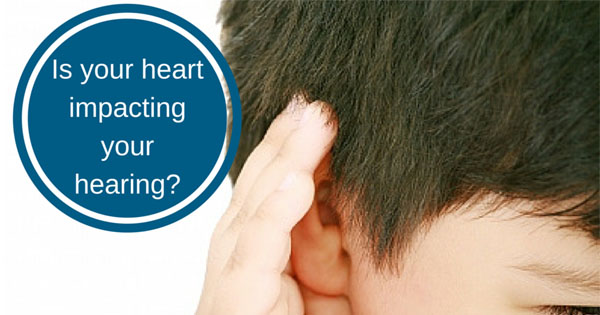Did you know hearing loss can be connected to heart disease?
 Heart disease impacts blood flow to the inner ear, which can lead to hearing loss.
Heart disease impacts blood flow to the inner ear, which can lead to hearing loss.
EarQ, a nationwide network of values-driven, patient-focused, and forward-thinking independent hearing healthcare providers, provides patients greater access to life-changing hearing devices and services. EarQ shared information explaining the connection between hearing loss and heart disease below.
While you’re already monitoring your blood pressure and cholesterol level to protect yourself against heart disease, there’s one more risk factor you need to consider: your hearing.
Researchers have called the ears a “window to the heart” because audiogram patterns correlate with signs of heart issues by showing decreased blood flow to the cochlea, the structure within the inner ear that supports the auditory process.
As sounds travel through the cochlea, they’re converted into neural signals for your brain to process and understand. Over time, disruptions to that process can contribute to a variety of physical, emotional, and mental health concerns. Because hearing loss can occur gradually, the best way to monitor your hearing health is to receive an annual hearing screening.
Women have a special connection to both heart disease and hearing loss and can especially benefit from taking steps to improve their health. In addition to annual screenings, there is a more tasty way to lower your risk of heart disease and hearing loss. Studies have shown that women who eat two or more servings of fish a week have a decreased risk of developing hearing loss, as the omega-3 fatty acids support healthy blood flow throughout the body, including the cochlea.
As many as eight million American women have hearing loss and, along with it, an increased risk of depression. While difficulty hearing can lead to feelings of embarrassment, self-doubt, and fear in all people, women with untreated hearing loss have been found to be particularly susceptible to increased social isolation and feelings of depression.
But women who address their hearing loss and work with a hearing healthcare professional to find the right customized hearing technology to suit their individual hearing and lifestyle needs can experience a greater quality of life. Improved hearing can lead to stronger relationships with your significant other, friends, and coworkers in addition to gaining self-esteem, confidence, and earning potential at work.
Just like most other health issues, a little proactivity can go a long way. By maintaining a well-balanced diet, incorporating exercise into your weekly routine, watching your blood pressure, not smoking, and remembering to schedule a hearing screening along with your annual physical, dental checkup and eye exam, you can help protect your heart and ensure your happiness for years to come.
Learn more about the unique link between hearing loss and associated heart conditions here.
If you are taking steps to lower cholesterol levels, access the free e-course 7 Natural Ways to Lower Blood Pressure at http://lowerbloodpressurewithlisa.com.
Lisa Nelson RD
Health Pro for HealthCentral
Image courtesy of David Castillo Dominici at FreeDigitalPhotos.net



